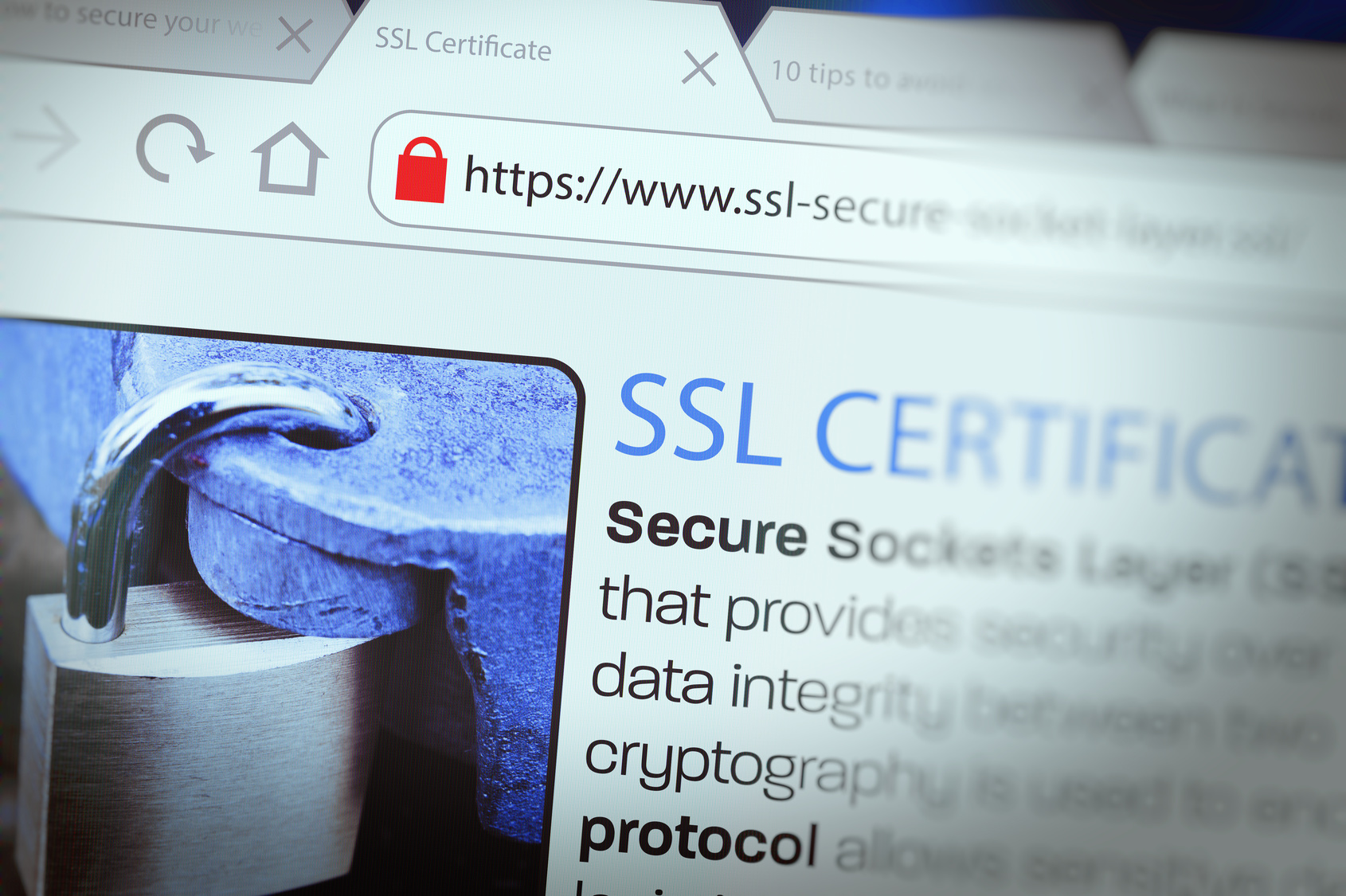More than 30,000 websites are hacked in a single day.
Translation?
If you thought your website was immune from getting hacked, think again. Even those who have strong cybersecurity measures in place still need to work to guard against new threats and attacks.
Have you thought about how you’ll update your site security for 2019?
If not, now is the time to start taking your company’s data protection plan — and more importantly, the data your customers have entered into your website — seriously.
Don’t wait until it’s too late to start worrying about cybersecurity. Be proactive, not reactive, when it comes to site security and data protection.
Read on to learn all about some of the most essential website security tips for the new year.
1. Reevaluate the Basics
It goes without saying that you’ll need to take a hard look at how the types of security controls you currently have in place should be updated for 2019.
But that doesn’t mean that the standard web security tips aren’t just as important as they’ve always been.
First of all, conduct an end-of-year security meeting with your team. This will help you to ensure that everyone is on the same page when it comes to security protocols.
This meeting is also an opportunity for you to speak with your employees about the importance of proper password management. Remind them that their work passwords should not be the same as their personal passwords — and that they should use different passwords for each work application or document.
Review this list of the most common passwords of 2018, and ensure that no one on your team is using them.
Additionally, let your team know that they should never click on unfamiliar links in personal emails at work. This opens them up to the possibility of phishing attacks and malware installations. If at all possible, employees should only check personal emails at home or on their personal mobile devices.
Finally, remind your team members that they should not access any work documents on public WiFi networks.
Though we all love the convenience of free WiFi, it’s also incredibly vulnerable to attacks. When working outside the office, the rule should be to use only private/secured networks.
2. Enable Two-Factor Authentication
One of the biggest website security tips for the new year?
Two-factor authentication.
The fact is that it’s easier than ever for someone to hack into your emails. Hackers just need to request that a password reset link be sent to your inbox, and then they can reset it themselves — controlling all of your data in the process.
In other words?
Entering the correct password on a new device (or after logging out of an application) is no longer enough to ensure that it’s being accessed by the right person.
Two-factor authentication works to correct this issue.
There are many different ways that, aside from just entering your password, you can confirm your identity. In some cases, you may get a text sent to your phone, allowing you to confirm a code sent to you.
You can also use vocal recognition, blockchain technology, and even biometric identification tools.
3. Install Automatic Updates
Let’s face it: when you’re in the middle of a busy workday, one of the last things you have time for is running updates on your software and security.
But these updates exist for a reason: they’re able to protect your data against new threats and viruses.
If you don’t run these updates — as annoying as they can be — you’re leaving yourself completely vulnerable to newer, better hacking techniques. In addition to continuing to hit that “update later” button, many of your team members might not even know that they have updates ready to install.
2019 is the year of the auto update. Just enable automatic updates, and let the problem take care of itself. If you’re working with a professional security company, they may even be able to run these updates for you once your team members have left the office for the day.
This way, you’ll be able to enjoy complete uptime while at work, but ensure that you’re fully guarded against threats.
Remember that over half of small businesses who are the victim of a cyber attack close within six months. Often — especially if you’re a smaller, younger business — the hit to your reputation just can’t be erased. Numbers like this alone should be enough to convince you to take your site security seriously.
In addition to frequently updating your website and network applications? Make sure that you conduct frequent security tests.
You want to make sure that you can quickly recognize potential vulnerabilities and gaps in your security plan — and get a handle on them at once.
4. Let IoT Devices Boost Your Security
The Internet of Things (IoT) doesn’t just make your life much more convenient.
It’s also a way to bolster your overall cybersecurity. Remember that these devices can easily be hacked into — making your passwords, private healthcare information, and much more all public knowledge.
IoT devices are vulnerable to DDoS attacks, data theft, malware attacks, and much more.
If you use the data stored on IoT devices to inform your website data in any way, you need to make sure you’re properly protected.
Using security strategies like medical device security testing will keep your smart objects and your website data safe.
5. Know the Latest Hacking Trend
As we hope you’ve realized by now, new threats to your cloud data security are developed every day.
One of the biggest website hacking techniques — that will likely only grow in 2019 — doesn’t actually happen through downloaded files onto your computer or an installation of malware.
In fact, all it takes is a simple phone call.
Many hackers now actually imitate tech support companies. They come at you offering to help you, and will often try to frighten you by telling you wild tales of new security threats that you’re likely at risk for.
They can be very convincing, which is why so many people fall right into this trap.
Under the guise of protecting your site and offering your website security tips, they easily gain access to your passwords, encryption keys, hard drive, cloud storage… the list goes on.
In some cases, you might even end up handing over remote control to hackers. Don’t be a victim of this frightening — and sadly, all too common — scam.
Always take the time to conduct thorough research when you’re in the market for a new cybersecurity company.
If you have your doubts about their legitimacy?
It’s always better to play it safe rather than sorry.
6. When in Doubt, Run Another Backup
The last entry on our list of the most important website security tips: you just can’t back up your data often enough.
Especially in 2019 — when data seems to travel at the speed of light — backing up your files once a week (or even once a day) just isn’t enough.
Things move fast on your website, and you get in new orders almost every single minute. You want to make sure that your website and company data is backed up as often as possible.
Look for backups that run once every few hours.
While cloud storage and backups are an effective and simple solution, you should also consider an offsite hard drive backup of all your data. This way, even if hackers do gain control of your website, things will be up and running again in no time.
What’s more, you won’t have to shell out any ransom money to these hackers in order to get your data back. This is because you’ll have a nearly complete backup of your website and data ready to go.
Implement These Website Security Tips as Soon as Possible
From making sure you still have your basics covered to understanding how hackers are evolving for the new year, we hope you’ve found this list of the top website security tips for 2019 useful.
For best results, don’t just implement one or two of these security measures — make all of them a part of your plan.
Of course, this is just the foundation of making sure that your website is in good shape. You still need to make sure it’s loading quickly, that it’s accessible on many devices, and that it’s optimized for SEO.
Looking for more tips and tricks to make your website the best it can be in the new year?
Keep checking back with our blog for more advice on how to make that happen.




